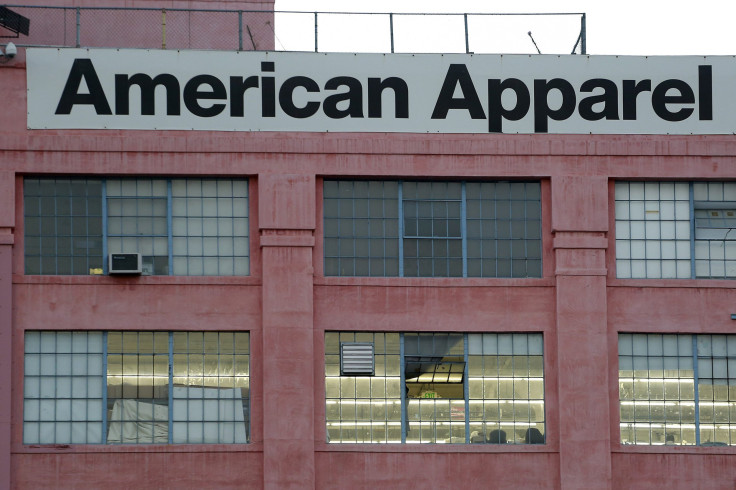Is American Apparel On The Rocks? Analysts Differ Over Chain's Ability To Hold On As US Manufacturer

The fallout from Dov Charney’s ouster as CEO of American Apparel Inc. (NYSE:APP) last month entered a new phase on Tuesday after the casual clothing chain received a default notice from Lion Capital on a nearly $10 million loan.
While the Los Angeles-based retailer says Lion’s claims aren't valid and that the company may seek damages for the accelerated repayment of the loan, American Apparel faces a slew of other financial problems. The company has warned that Charney’s departure could trigger defaults on other loans, including one for $50 million from Capital One. American Apparel has posted nearly $270 million in losses in the past four years, is more than $200 million in debt and faces an interest payment of $13.5 million to bondholders in October.
Some analysts say the company will be forced to reorganize its manufacturing operation and other business practices to remain solvent, but one analyst who spoke with International Business Times said it's too soon to say American Apparel is unraveling.
“It’s the exact opposite,” William Susman, managing director at Threadstone, a boutique advisory and research firm on Madison Avenue, said. He pointed to Standard General, a New York-based hedge fund, which has forged an alliance with American Apparel’s board and is attempting to turn the company around. Two weeks ago, Standard General bought 27 million shares of American Apparel through an agreement made with Charney. That brought Charney’s stake in the company up to 43 percent, but the deal was made under the condition that his voting rights must be approved by Standard General. In other words, Standard General is effectively in control of that 43 percent.
“They look to be making problems go away including repayment of the Lion loan, a neutralizing of Dov Charney, alignment amongst shareholder representatives so that now the company can focus on rebuilding, attracting talent and restoring the brand and profitability,” Susman said of the agreement.
Other analysts who spoke with the Los Angeles Times said Charney’s firing could result in a completely changed business model for the retailer, which has touted itself as “sweatshop-free” by selling only clothing made in America.
Ronnie Moas, founder of Standpoint Research Inc. in Miami Beach, Florida, suggested American Apparel should move its manufacturing abroad to keep pace with other retailers such as H&M and Zara. He said the company could maintain its brand image by paying foreign workers higher wages.
“It’s a no-brainer, and they don’t have much choice anyway,” Moas told the L.A. Times. “Otherwise, they let the whole company go under or let someone take it private and then potentially take all production overseas and not raise wages at all.”
Will McKitterick, an analyst with IBISWorld, said the latter would be a risky move.
“It would be really hard to shed the made in America model because it’s such a part of the company’s brand,” McKitterick said. “Doing so could radically change the company and potentially turn off some consumers.”
Regardless of where American Apparel is heading, Susman asserts that the latest news about Standard General is a positive step forward.
“Rather than there being this contentious public fight, there now seems to be a consensus and working together to solve problems instead of perpetuating them.”
© Copyright IBTimes 2025. All rights reserved.






















